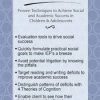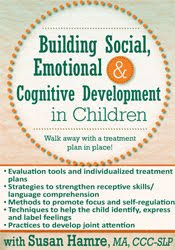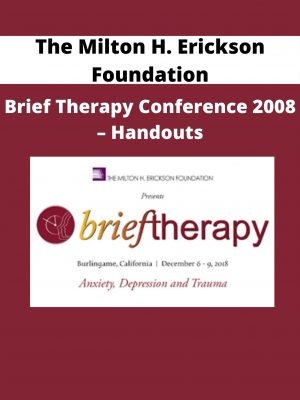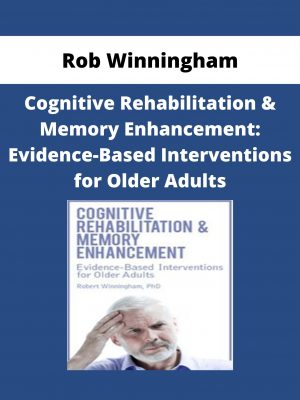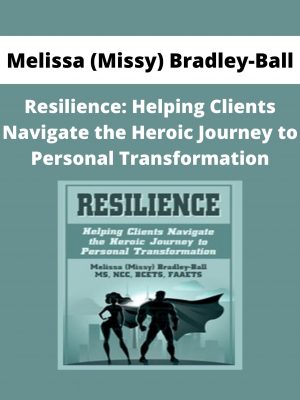Susan Hamre – Building Social, Emotional and Cognitive Development in Children
$200 Original price was: $200.$75Current price is: $75.
Shopping Instructions:
- DISCOUNT 15% : SHOP15
- Product Delivery: Within 1 – 12 hours after purchase.
Walk away with a “social-emotional intervention toolbox” to enhance your client’s overall successful integration into society.
Susan Hamre – Building Social, Emotional and Cognitive Development in Children
In this interactive seminar, you will learn practical strategies to improve your client’s emotional health, social competence and cognitive abilities. Discover evaluation and treatment plans for children (birth-13 years old) who demonstrate social-emotional challenges, including those diagnosed with disorders/delays in communication, development, cognition, autism, sensory processing, behavior and attachment. This seminar also includes social-emotional development as it relates to cultural influences, adoption, child abuse and neglect.
Walk away with a “social-emotional intervention toolbox” to enhance your client’s overall successful integration into society. The essential strategies and techniques you will learn include:
- Scripts and first person stories to develop creative language
- Sensory diets that can be easily integrated throughout daily routines
- Methods to help the child identify, express and label their feelings
- Video modeling techniques to develop joint attention
- Activities to reduce stimulation and provide calm
- Systems to provide family structure and consistency in the home
- Techniques that can be used in the clinic, home and school
Don’t miss this opportunity to learn strategies that can be implemented immediately with some of your most challenging clients.
OUTLINE
Linking Disorders to Social-Emotional Development
- Developmental delays
- Cognitive delays
- Autism Spectrum Disorder
- Social (Pragmatic) Communication Disorder
- Sensory Integration/Processing Disorder
- Behavioral disorders
- Attachment disorders
Foundations for Treatment
- Current brain research: What is critical in overall development?
- How social-emotional and cognitive development are intertwined
- 6 core features of solid social-emotional health
Screening and Evaluation Tools
- Early signs of ‘at risk’ social-emotional development
- Measurement of cognitive functions
- Pre-linguistic communication
- Expressive and receptive communication
- Early and subtle signs of autism
- Sensory seeking and/or avoiding behaviors
- Fine and gross motor development
Communication Strategies
- Interventions to develop receptive skills/ language comprehension
- Scripts and first person stories to develop creative language
- Communication cards, choice boards and Apps as visual supports
- “High-tech” communication devices
- Social stories to break down daily activities
Sensory Integration/Processing Strategies
- Sensory diets that can be easily integrated throughout daily routines
- Sensory breaks that promote focus and self-regulation
- Teach child how to self-advocate
Self-Regulation Strategies
- Teach child to identify, express and label their feelings
- Use high focus/interests as incentives to change behavior
- Techniques to teach self-calm and self-control
- Guided imagery and visualization for relaxation
- Manage behavior and emotions
Joint Attention Strategies
- Develop a relationship based on joint interest
- Create a need to access interest
- Generate motivation
- Video modeling
Environmental Strategies
- Create a ‘calm’ atmosphere
- Visual supports for organization
- Reduce stimulation and peer-to-peer conflict
- Appropriate vs. inappropriate use of technology
Individualized Treatment Plan: Hands-on Activity
- Walk away with a treatment plan in place!
Would you like to receive Susan Hamre – Building Social, Emotional and Cognitive Development in Children ?
OBJECTIVES
- Explain how early forms of communication, sensory, social-emotional and physical development can affect overall cognitive development.
- Utilize strategies to strengthen communication, sensory processing and joint attention deficits that impact social-emotional development.
- Develop treatment plans that impact the development of social-emotional skills.
- Design treatment techniques that can be used in the home, school and clinic environments.
- Employ strategies to develop social reciprocity, self-regulation, attention and overall focusing skills.
- Determine the family support systems that will ensure realistic and long-lasting plans for the child.
Related products
HEALTH & MEDICAL
HEALTH & MEDICAL
HEALTH & MEDICAL
HEALTH & MEDICAL
HEALTH & MEDICAL
HEALTH & MEDICAL


